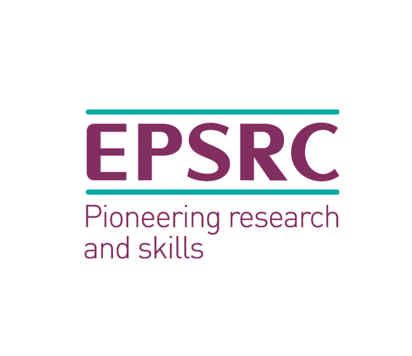
Vaccine manufacturing systems have undergone evolutionary optimisation over the last 60 years, with occasional disruptions due to new technology (such as mammalian cell cultures replacing egg-based systems for seasonal influenza vaccine manufacture).
The Hub is looking to transform how we manufacture vaccines for developing countries."
Prof Robin Shattock
Director of the Future Vaccine Manufacturing Hub
Global vaccination programmes have been a great success, but the production and distribution systems from vaccines still suffer from costs associated with producing and purifying vaccines and the need to store them between 2 and 8 °C. This can be a challenge in the rural parts of low- and middle-income countries where 24 million children do not have access to appropriate vaccinations every year.
An additional challenge is the need to rapidly respond to new threats, such as the Ebola and Zika viruses, that continue to emerge. The development of a 'first responder' strategy for the latter means that there are two different types of challenges that future vaccine manufacturing systems will have to overcome:
- How to design a flexible modular production system, that once a new threat is identified and sequenced, can switch into manufacturing mode and produce of the order of 10,000 doses in a matter of weeks as part of localised containment strategy?
- How to improve and optimise existing manufacturing processes and change the way vaccines are manufactured, stabilised and stored so that costs are reduced, efficiencies increased, and existing and new diseases prevented effectively?

Key strategies, benefits and impact
Examples of strategies for challenge 1 are RNA vaccines. The significant advantage of synthetic RNA vaccines is the ability to rapidly manufacture many thousands of doses within a matter of weeks. This provides a viable business model not applicable to other technologies with much longer lag phases for production (viral vectors, mammalian cell culture), whereby procurement of the vaccine can be made on a needs basis avoiding the associated costs of stockpiling vaccines for rapid deployment, monitoring their ongoing stability and implementing a cycle of replacement of expired stock.
In addition, low infrastructure and equipment costs make it feasible to establish manufacture in low-income settings, where all required equipment has potential to be run from a generator driven electrical supply in the event of power shortage. This fits the concept of a distributed, flexible platform technology, in that once a threat is identified, the specific genetic code can be provided to the manufacturing process and the doses of the specific vaccine can be produced without delay. Additional concepts that we will explore in this category include the rapid production of yeast and bacterially expressed particles that mimic membrane expressed components of pathogenic viruses and bacteria.
Examples of strategies for challenge 2 build on our work on protein stabilisation which has been shown to preserve the function of delicate protein enzymes at temperatures over 100 °C. We shall exploit this knowledge to develop new vaccine stabilisation and formulation platforms. These can be used in two ways:
- to support the last few miles of delivery from centralised cold chains to patients through reformulation, and
- for direct production of thermally stable forms, i.e. vaccines that retain their activity for months despite being not being refrigerated.
We believe that the best way to deliver these step changes in capability and performance is through a team-based approach that applies deep integration in two dimensions: between UK and LMIC partners to ensure that all the LMIC considerations are "baked in" from the start and between different disciplines accounting for the different expertise that will be required to meet the challenges.
The UK researchers form a multidisciplinary team which spans Medicine, Chemical Engineering, Pharmacy, Life Sciences and Manufacturing from Imperial College, Nottingham, Cambridge, Bristol and Cranfield. They are associated with a number of EPSRC and other Centres and Hubs, including the Centre for Synthetic Biology and Innovation, the Centre for Process Systems Engineering, the Future Manufacturing Targeted Healthcare Hub, the Sanger Centre, the Clinical Biotechnology Centre and the National Institute for Biological Standards and Control. We expect to have a wide-range of academic impacts that is reflective of the diversity of the team. Our UK-based team is complemented by researchers and manufacturers in key LMIC countries, initially India, China, Uganda, Vietnam and Bangladesh. In the fields of immunology and the associated biosciences, we shall develop new vaccine and production system concepts based on RNA, GMMA, yeast and IC-BEVS platforms together with new point-of-care assays for our novel products.
The knowledge generated will be of great interest to a range of researchers in these fields and the broader field of public health. A particular focus of the programme is dissemination in a variety of open access forms suitable for use in LMICs. The bioprocessing, chemical engineering and manufacturing systems academic communities will benefit from exposure to new opportunities and challenges associated with designing, optimising and scaling up new technologies, improving cost and responsiveness and understanding the imperatives around technology transfer and management of complexity in an LMIC context. This is further enhanced by exploration of whole systems thinking and end-to-end supply chain management, where the manufacturing research must consider inbound and outbound material management and the need to contrast the costs and benefits of distributed versus centralised manufacturing. More generally, the translation of new laboratory discoveries into commercial processes will be of interest to those in the process systems engineering and manufacturing communities.
Our objective is to develop and demonstrate platform technologies which genuinely provide a step change in capability, and will help the community rethink the way in which products are manufactured. Considering the broader challenges in the area of novel therapeutics (e.g. dealing with antimicrobial resistance), our work will be of interest to bioprocess engineers, biotechnologists, and fundamental scientists (biologists/medicinal chemists) who do research on the production of medicinal compounds and biologics. In order to facilitate the development of new LMIC academic collaborations, we have established a flexible fund for LMIC driven research challenges and will hold a global workshop alongside the annual meeting of the Developing Countries Vaccine Manufacturer's network.
The combination of dissemination workshop, challenge identification and flexible funding is replicated in the UK with a view to building a UK research network beyond the Hub partners. The funds for the latter (£300k) are provided by Imperial College, and will only be available to non-Hub academic institutions. Given the growing research links between the UK and RoI (evidenced by the EPSRC/SFI joint agency agreement) and RoI's excellent science and manufacturing base in biologics, this will also be open to RoI academics (but the funding will come from Imperial College funds). Our work will serve as a blueprint for other academics in the biosciences who wish to follow a path for the industrialisation of their research and understand the manufacturing implications of innovations in life science. This will particularly be the case for researchers interested in the LMIC context. Through user engagement with LMIC industry, we will determine the best strategies for rapid translation of innovative platforms and smooth scaling up to viable LMIC industrial production processes.
The production and delivery of vaccines over the last decades have been global public health success stories, with smallpox eradicated and polio only prevalent in very specific locations. However, population growth, global travel, intensified farming and underlying mutations mean that new threats continue to emerge leading to the need for rapid response platforms and there are still many challenges to ensuring cost-effective and widespread vaccinations, such as the cost and need for a cold chain through to the patient. The medicinal and life sciences have been discovering and developing a number of exciting new technologies with the potential to make a step change in the production, formulation and delivery of vaccines.
These are generally characterised by a move away from mammalian cell-based production of subunit proteins and viral vectors towards technologies capable of rapid scale up and low cost production including Synthetic vaccines (DNA, RNA), virus-like particle (VLP) vaccines generated in yeast and baculovirus/insect cell culture platforms, and GMMA particles produced in bacteria. These are complemented by developments in formulation and protein stabilisation science which hold promise for thermally stable vaccines.
Our proposed programme exploits and extends existing collaborations between these departments with a view to enabling rapid translation from concept discovery to manufacturing platform. We will ensure this by combining leading research and development, engineering and scale up with demonstration and translation in LMIC countries enabled through deep end-user engagement by our LMIC partners (who operate manufacturing facilities) coupled with capacity building and training in the UK and overseas.
Our proposed programme will positively impact a wide range of stakeholders including:
- immunologists
- public health specialists
- life scientists
- chemical and process engineers
- chemists
- formulation scientists
- vaccine producers, and
- most importantly populations in LMIC countries who will ultimately benefit from reduced cost and increased availability of large-scale vaccines and rapid public health response to emerging threats.
To ensure this impact, we have engaged several relevant partners in the preparation of this proposal (in particular Hilleman Labs (India), MRC Ugandan Virus Research Institute, Dalian Hissen Bio-pharm, China, Incepta, Bangladesh, and VABIOTECH, Vietnam) as initial stakeholders in our research programme, together with the Developing Countries Vaccine Manufacturing Network which represents 50 manufacturers in 17 countries.
We have also engaged GSK Vaccines Institute for Global Health (GVGH, Italy) who have a track record for development of vaccines for LMIC countries. Representatives from each of these collaborating organisations will not only be closely involved in shaping and refining the programme but working with us as an integrated team with a view to maximising impact and ensuring large-scale outcomes. There is great training potential in our proposed programme. We shall catalyse UK and LMIC researchers in a truly multidisciplinary programme which will provide many opportunities for cross-fertilisation of ideas and training.


